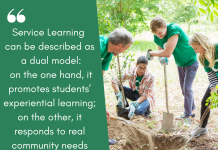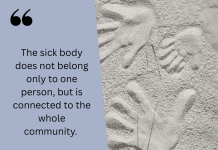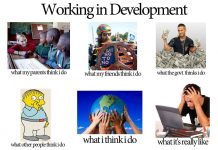Last summer, while staying at home in a difficult period affected by the Coronavirus restrictions, I was looking for some job opportunities abroad and I came across the European Solidarity Corps (ESC) programme. I didn’t know a lot about it, so I started to search information…and you know what I found? I discovered it consists of choosing a volunteering project abroad or in your own country concerning activities related especially to the educational, social or environmental areas. It is a programme without expenses and you receive also a monthly pocket money. Super! So I read the projects proposed and I chose the one I liked the most.
The project to which I applied for is taking place in the shelter of unaccompanied migrant minors operated by “Hope for Children” CRC Policy Center in Nicosia. From the beginning I have been understanding that this experience is turning out to be a great opportunity for me to develop new skills in working in the front line with migrants. It is commonly not very simple to be part of a project “in the field” and as a graduate in Development Cooperation I am really happy to live this chance.
After these first months of engagement, I can say that the European Solidarity Corps programme consists of a high-value volunteering experience where your personal and professional abilities are completely involved and enriched. Deciding to be part of a project like this shouldbe everyone’s choice. I can see how worth is the experience that my ESC colleagues and I are living, and in general how important volunteeringis forthe society.

In fact, taking part to a volunteering experience, whether it is in the social area or in any sector towards which a person feels more inclined to, will add a lot in the personal life and in the life of others. I believe in the profound meaning of volunteering because I have already taken part to other experiences of this kind regarding social activities and every time they confirm my idea that helping each other is essential. For example, during the first months of the Covid-19 pandemic, I dedicated some of my time to do volunteering activities for vulnerable people, providing food and essential goods to them, and those were fundamentalfor their lives.
The importance of volunteering is indeed well-known. Just regarding the social area, the people involved in volunteering activities are committed to provide necessary services to disadvantaged people, by filling also the gaps that often are present in the work of the public or private sectors. These people put their own skills, even the simplest ones, at the disposal of those who need them, and in the meanwhile they develop new ones.
Doing volunteering means living an experience of active citizenship, by devoting some free time to others in a period in which donating time has a precious value. Being a volunteer means to put the own person, emotions and experiences into play, following the principle of solidarity. As concerns emotions, becoming a volunteer could also mean finding oneself faced with difficult situations that affect the own sensitivity, which is why it is important to choosean activity to which one is passionate about.
Moreover, the significance of volunteering among young people is crucial: it opens the mind, stimulates dialogue, reflection and above all increases empathy. Trying, at least once in a lifetime, the experience of volunteering marks for sure one’s growth. As Mother Teresa of Calcutta used to say: “Whoever in the journey of life has even lit only a torch in the dark hour of someone has not lived in vain”. And at the end, I think that is more what one person receives from the people helped, than what he gives to them. In fact, by doing volunteering activities our mind and soul can be “fed” in a simple, free, genuine way.
So don’t miss this possibility: take the chance, be a volunteer!

















